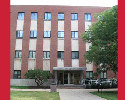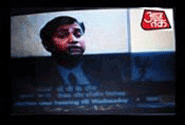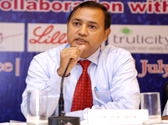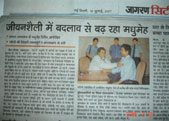 |
|
 |
 |
 |
|
 |
 |
 |
 |
 |
 |
 |
| Dr Roy's TV Interviews | Dr Roy giving Lectures | Print Media Presence | Testimonials | Awards & Achievements |
|
For consultation & treatment (by appointment / or online) click How to Consult Us (Last Updated on: )
DIABETES
|
|
What is Diabetes ? |
TESTIMONIALS
|
|||||||||
|
What is Diabetes: When blood glucose signicantly increases above normal range i.e. fasting blood sugar more than 126mg/dl & after food blood sugar (pp) above 200 mg/dl) is called diabetes. (In normal persons the blood sugar remains in normal range in empty stomach & even after the food. Normal level of blood sugar in fasting condition is 70 to 110 milligram & after food it should be below140 milligram deciliter. ) Thus criteria for the, diagnosis of diabetes is: 1) Fasting Blood Sugar more than 126 mg. /dl. 2) Post prandial (P.P.) Blood Sugar more than 200 mg./dl. The classical symptoms of diabetes are excess thirst, excess urination, weight loss inspite of good eating, weakness, fatigue, leg pain, easy fatigability, decreased vision, recurrent itching deposition of whitish deposits & fissuring on glans pennis & foreskin in men, itching in & around vulva, difficulty in healing of wound so that wound may not heal for long time. Sometimes patient may have sugar for long time without their knowledge & they manifest directly with various complications of diabetes. Thus patient may directly present with complications of diabetes as burning & numbness in feet (nerve involvement), chest pain or breathlessness (heart involvement), decreased vision (eye involvement), selling over feet or body (kidney involvement) etc. Remember many patients with Diabetes are asymptomatic i.e. they have no symptoms & they are diagnosed only when they go for routine blood sugar test during routine investigations for some other problem, then it was found that their blood sugar is high. Sometimes patient�s blood sugar may become too high leading to coma (Diabetic ketoacidotic coma due to high blood ketone, Ketone is an acid which is produced when blood sugar becomes very high due to severe insulin deficiency. Why Diabetes Occurs (Causes) Causes of Diabetes in Adult: Diabetes in adult is known as type 2 Diabetes, maturity onset diabetes or non insulin dependent diabetes. This usually occurs after the age of 30 year. This type of diabetes occurs due to decreased secretion of insulin as well as decreased effect of insulin (already less produced) in body i.e. insulin resistance. Thus diabetes in adults occurs due to twin defect namely insufficient insulin production in the body as well as what ever insulin is being produced works less meaning insulin is less effective in lowering the blood sugar (i.e. less ineffective also known as insulin resistance). This less insulin production & less insulin effectiveness may be due to following causes: 1) Hereditary factors: There are two type of inherited defect in gene of the persons with diabetes as: a) First one is defect in genes of insulin producing cells so that their insulin producing beta cell (in pancreatic gland) is not able to secrete enough insulin so that less insulin is produced i.e. insulin deficiency. b) The second hereditary defect, there is inherited defect in insulin molecule or its working mechanism so that what ever insulin is being produced is not very effective in lowering the blood sugar level because either insulin itself is defective or their body organs are inherently resistant to secreted insulin action i.e. insulin resistance. Thus glucose reaching in blood from intestine is not utilized by body & sugar concentration in blood keeps on increasing to higher than normal resulting in diabetes. The above mechanism is the cause of diabetes in vast majority of patients. 2) Many drugs as steroids, growth hormone, diuretics taken for longer times leads to decreased insulin secretion & makes insulin less effective causing drug induced diabetes. 3) Many toxins as insecticides found in many food items may damage insulin secreting glands. 4) Many hormone disorders, as excess of Cortisol hormone, growth hormone, hyper aldosteronism etc decreases insulin secretion & lead to diabetes. 5) Chronic alcohol use may lead to pancreatic damage leading to insulin deficiency & diabetes. 6) Diabetes during pregnancy occurs due to release of certain hormone during pregnancy which decreases the effect of insulin secreted from pancreas leading to diabetes. The diabetes which develops during pregnancy is called Gestational Diabetes. 7) Latent Diabetes 8) Borderline diabetes 9) Impaired Fasting Glucose 10) Impaired Glucose Tolerance Causes of Diabetes in children: There are following types of diabetes in children: 1) Type I (i.e. Insulin dependent diabetes mellitus): Type I diabetes is also known as Insulin dependent Diabetes. It occurs at young age often below 25 yr. of age due to destruction of insulin forming beta cells in pancreas by a particular type of viral infection. These viruses infect the pancreas & then damaging insulin forming beta cells leading to total deficiency of insulin hormone so that blood sugar rises. Such children are dependent on insulin injection for their survival. If they miss insulin injection for few days then their blood sugar level reaches very high & they may go in coma. Some times ketones appear in blood & urine (called as diabetic keto-acidosis). This may be sometimes life threatening also. 2.) Type II i.e. Non Insulin Diabetes of young (NIDDY): This usually occurs in obese children with positive family history. In such children diabetes is initially controlled on tablets, later insulin may be required by some. 3.) MRDM (Malnutrition related Diabetes 4) Fibrocalcific Pancreatic Diabetes (FCPD) 5) Drug induced: steroid induced 6) Auto-antibody induced. 7) Secondary diabetes In Children after investigating the type of Diabetes appropriate treatment should be prescribed. Risk of Type-II diabetes to Children & other family members: If one parent has Non-Insulin Dependent Diabetes risk of developing diabetes to children is 36% i.e. one out of 3 children will develop diabetes. If both parents have diabetes then 75% of their children will become diabetic (i.e. if they have four children then 3 out of four will become diabetic). If one brother or sister has diabetes risk to other siblings is 33% i.e. one out of every 3 will become diabetic If parent has Type-1 Diabetes i.e. insulin dependent diabetes then risk to offspring is very little. So based on detail data of diabetes patient & his family history, we may be able to tell them about the risk of diabetes to their children. Treatment of diabetes consists of Diet, Exercise, and Drugs or Insulin Diet control (What to Eat) Diet: For detail diet advice meet our doctor at our centre. Tips for diet in diabetes: � Take every food in proper amount, not more not less. � Consistency in meal timings, in meal composition & Calorie intake. � Spacing of meals: Eat 3 major meals & 3 small snacks. � Matching diet & insulin therapy. � For variety in food, use food exchange system. �Do not miss meal or delay meal too much.. �Do not starve, eat free foods when hungry. �On holidays: you may be at risk of eating too much, to deal this, take small meal more frequently. �If ate too much, Do a little more exercise either before or after. .Glycemic Index: You should consume only those foods which have low glycemic index. -Sweeteners: a) Saccharin (available as Sweetex): It is safe even if you take for long time in proper doses. Side Effects: it leaves a bitter after taste, otherwise no side effect It should not to be used by Pregnant & breast feeding mothers. b) Aspartame (available as Sugar Free or equal tablets): It is safe even if you take for long time in proper doses. It should not to be taken during pregnancy .High Fiber Diet: Select fiber rich foods because they decrease blood sugar, cholesterol & help in reducing other diabetic complications etc. . Fat & Oils: Use Low Fat Diet. Avoid saturated fats & use more of unsaturated fats. Use two types of oils daily. One should be refined oil with predominantly monounsaturated fatty acid & other should be that with predominant polyunsaturated fatty-acid. You should use only those oil with safe ratio of omega 3 fatty-acid & omega 6 fatty-acid. Because if you eat oil with more of omega 6 fatty acid ,then risk of heart problem, kidney problem & other diabetic problems increases. Saturated fat should be used as less as possible because they increase the cholesterol & heart & neurological problems. Use Fat Free milk (Preferably double toned) Vitamins: Supplementations of certain specific vitamins has been shown to decrease diabetes complications. Antioxidants may be taken. Micronutrients & Minerals: Certain micronutrients should also be replaced as they help in controlling diabetes & help in preventing complications Diet in Special Situation In case of High Cholesterol = Eat less fat & oil, No
yellow of egg Diabetes & Alcohol Either should not be taken or if feel like then take in
moderate & safe prescribed dose. Diabetes & Smoking Smoking is not good for diabetic. They should not
smoke. What Exercise? Walking: best especially if you can do brisk walk for 30-60 min. Jogging, Treadmill, Swimming, Playing Badminton or other game. How Often? Daily/or at least 4 days per week. What time? Excellent time of exercise is before breakfast but can also be done before dinner. � If you want to do intense exercise � get fitness by getting your Treadmill Test done especially if your age is above 35 or have heart disease or have diabetes for more than 10 yrs. � Do 10 min. warm-up, 20-30 minute of active exercise & finally 10 minute of cool down phase. � Remember at time of exercise insulin should not have been given in exercising limb. � If going on a new non-routine exercise, check your blood glucose before & after exercise & during exercise (every 30 minute) if it is prolonged exercise. � May need extra food for 30 hours after prolonged or heavy exercise. � If doing new exercise either decrease short acting insulin before exercise or eat 20 gm. Carbohydrate every 30 minutes. Precautions Regarding Exercise � Use well fitting canvas shoes or sport shoe with laces. � Don�t exercise if blood sugar is uncontrolled (Bl. Sugar >300 ml/dl) � If you have Heart problem � don�t do wt. Lifting, strenuous exercise. � If severe eye problem � should not do heavy lifting, head low positions & excess head jerks, jogging, Racquet - sports. � If you have lost sensation in feet � check feet more carefully after exercise, avoid treadmill, prolonged walking, jogging, step exercises. � Patient with Diabetic kidney involvement � should not do heavy strenuous exercise as it worsens nephropathy. � Should carry diabetes identification card & source of readily available carbohydrates to treat hypoglycemia. � If feel low blood sugar take some carbohydrate. The five groups of medications used for diabetes control are: 1) Those medicines which improve the insulin secretion in the body 2) Those medicines which improve the action of insulin on liver 3) Those medicines which improve the action of insulin on muscles 4) Those medicines which decrease the absorption of glucose from the intestine into the blood. 5) There are many new drugs are available which controls diabetes well as prevent complication 6) There are many new drugs are available which are very effective in preventing diabetic complications. Why inspite of taking tablets diabetes is not controlled? Possible causes may be: - If tablets have failed & you don't want to take insulin there are some newer drugs which can control diabetes in many. But these have to be used under Diabetes Specialist supervision. What are the modes of Insulin Therapy: Now the availability of insulin sprays & jet injectors have made insulin therapy painless. Thus more & more patient are happily taking insulin therapy due to comfort of insulin therapy. At present insulin therapy can be started by any of the below mentioned five methods: a) Insulin Spray b) Insulin jets c) Insulin Nose Spray d) Insulin Pulmonary Spray e) Oral Insulin Spray f) Insulin Injections g) Insulin Infusion Pumps Future Newer insulin therapies which have not come in market ,but are expected to be available for patient treatment soon are: 1) Oral Insulin Capsules 2) Artificial insulin secreting pancreas 3) Islets cell transplant 4) Stem Cell Transplant When to Start Insulin: We must start the insulin if blood sugar targets arte not achieved inspite of maximum dose of tablets. We first try newer drugs if that also fails then one should take insulin for short time say 2 to 3 months. Newer Drugs to avoid insulin & stop insulin injection Newer Tablets: There are many new drugs have been launched in western countries USA & UK which are very effective in controlling diabetes even when our available oral tablets have failed. There are many medical stores in Delhi which make these medicines available to patients on order. Thus if tablets has failed & you don't want to take insulin there are some newer drugs which can control diabetes in many. Misconcept About Insulin This is a Misconcept that once insulin started it can never be stopped. But It is Wrong, in 80% cases insulin can be stopped after 2-3 months of insulin therapy. How? Because insulin forming organ pancreas gets rest by giving insulin injection from outside. In 2 to 3 months, body is able to repair the pancreas & it again stars producing enough insulin to keep blood sugar in normal range. Thus once tablet fails insulin should be started. After three months of insulin therapy patient can again be shifted on tablet. In majority of cases (i.e. in approximately 80% people) insulin can be stopped later after a short course. Side effects of insulin are weight gain, hypoglycemia (i.e. low blood sugar), and edema over body & sometime insulin allergy i.e. itching & pain, nodule at injection site. But if given by Diabetes specialist, chances of side effect are less. Insulin therapy in insulin dependent Diabetes. There are three newer insulin which are very effective in IDDM especially in young children because they can be injected after food & they are painless. Why in some inspite of insulin diabetes is not controlled? Possible causes may be:- � Insulin being given may not be right one. � Inadequate doses. � Insulin not being injected properly � Wrong site � Wrong technique � Injecting at same site � Other causes as stress, steroid, hormonal disorder. Remember in upto 50% patients who are taking insulin still there diabetes is not controlled because they are doing one of the above mistakes. So you need to meet us to find out the exact cause of uncontrolled diabetes. Insulin Injection Techniques: � Wash hands with soap water. � Mix insulin by gentle shake & rolling. � Take the required amount of insulin in syringe, roll that syringe on palm to bring at room temp. � Clean injection site & allow to dry. � Pinch a fold of skin. � Inject at 45� to 90�. � Withdraw needle, apply pressure. � Recap syringe for reuse (2-5 days). Insulin: Stability & Storage � In Refrigerator �it is stable for many months till expiry. � At room temperature : In winter (<25�C) � stable for 2-3 months In summer (<35� C) in dark corner stable for 1 month. In Peak summer if no refrigerator keep in cool place � Avoid direct sun exposure � If large clubbed particle visible means insulin has become degraded. What you should do when you are sick?
If vomiting , pain abdomen, drowsiness � Consult Doctor�may be D.K.A.. Precautions During Travel � Carry
double the dose of medicine & keep all medicine/insulin at two separate
places. BY AIR : If crossing time zone � When you lose hours from day say traveling from west to east you may need to skip or reduce insulin dose. � When adding hours to your day (East to West) you need an extra dose of insulin. BY CAR : If going by car if temperature is very high carry in thermos with ice. Newer Treatments for Diabetes In Diabetes there have been
many recent advances which have lead to improved & better life of diabetes
patients. These are as follows: 2) Newer Drugs to Prevent Complications: Many new drugs have been recently launched which if used properly, they prevent all diabetic complications by more than 90% patients. 3) Newer Insulins: 4) Islet Cell Transplant: Only Beta cells transplanted in muscles, under skin or in liver which makes insulins (No surgery needed) 5) Stem Cell Transplant: This is the most latest therapeutic technique in which just single injection of multi-potent stem cells will cure the diabetes in children. In adult patient stem cell treatment will either make patient free of insulin injections or the dose of insulin will markedly decrease. 6) Artificial Pancreas: these are devices which delivers insulin into body as much required. 7) Pancreas Transplantation: Pancreas transplantation may be done in type-I or type-2 diabetes to cure diabetes. As you know in majority of cases diabetes can not be cured permanently but can be controlled only. But in some patients in whom diabetes is secondary to some hormone disorder or due to some drugs or due to some lifestyle disorder, in them it can be cured. Cure of childhood Diabetes: The various options for possibility of cure in type 1 diabetes are: a) Antibodies treatment: There are many antibodies have been developed which block the pancreas destroying factors in body leading to stoppage of further damage to pancreas. Thus if treatment with antibodies started early in the course of diseases many times cure can be achieved. b) Pancreas Transplantation: Pancreas transplantation may be done in type-I or type-2 diabetes to cure diabetes. c) Istel Cell Transplant: Only Beta cells transplanted in muscles, under skin or in liver which makes insulins (No surgery needed). It cures diabetes. Cure of type - 2 Diabetes: For cure of diabetes you need following steps: (1) Cure of diabetes causing hormone disorder: First of all you have to be diagnosed that what is the cause of your diabetes i.e. whether it is due to some hormone disorder or due to insulin deficiency or due to insulin resistance. (2) Lose Weight: There are many new drugs which have been developed which leads to weight loss thus curing many diabetics. (3) There are some drugs which Increases insulin formation & also increase effect of insulin leading to cure of diabetes in some patients. 4) Pancreas Transplantation: Pancreas transplantation may be done in type-I or type-2 diabetes to cure diabetes. 5) Istel Cell Transplant: Only Beta cells transplanted in muscles, under skin or in liver which makes insulins (No surgery needed). It cures diabetes. There are three drugs which were being used to prevent Diabetes, these are Metformin, Acarbose & Glitazones as piogtlizone & Rosigtlizones. These should be taken along with regular exercise, normalization of weight, less stress full life etc. There are other options to prevent Type I diabetes as Antibodies against the damaging cells. So with these measures prevention of diabetes possible. So measures to prevent diabetes should be started from yong age so that insulin resistance, does not sets in at young age. Diabetes during pregnancy is called gestational diabetes,. Persistent high blood sugar during pregnancy leads to defect in foetus so that child may develop many body defect. Thus during pregnancy fasting blood glucose should be below 95 mg./dl. & after food (PP) should be below 140 mg./dl. & HbA1C should be below 7.0%. For this initially diet therapy & regular physical exercise is advised. If above measures do not bring blood sugar in normal range then insulin therapy is suggested. Now there are various new devices for insulin therapy are available which has made insulin injection therapy painless. During pregnancy Glycosylated Hemoglobin (HbA1C), fetal ultrasonography & fetal echocordiography should be done to monitor fetal well being. Once baby is born he should be examined for various defects & should be monitored for risk of hypoglycemia. How to Monitor Diabetes Control Following tests are required to asses diabetes control. 1) Get Blood sugar fasting & PP regularly Stopping of Insulin is now possible because many new drugs have now come in market which are very effective in controlling sugar after stopping insulin if given in right combination. Video
TESTIMONIALS - DIABETES
|
|||
|
We get patients from all major cities in India & Abroad . In the following cities all the facilities for investigation & treatments including medicines are available as Delhi (North, South, East, Central, West, New Delhi). To Different Communities like Hindustani, Hindustan, Hindu, Christian, Muslim, Sikh, Parsee. The other cities are NCR, National Capital Reagion in India, Indian, Hindustan, Ghaziabad, Faridabad, Noida, Gurgaon Gurugram, Meerut, Bombay, Chandigarh, Calcutta, Simla, Jammu, Srinagar, Aligarh, Lucknow, Kanpur, Allahabad, Varanasi, Dehradun, Madras, Kolkatta, Nainital, Agra, Jaipur, Bikaner, Jodhpur, Porbandar, Dwarka, Ahmedabad, Gandhi Nagar, Vadodara, Surat, Mumbai, Pune, Thane, Panaji, Nasik, Nagpur, Indore, Ujjain, Bhopal, Gwalior, Jabalpur, Raipur, Hyderabad, Goa, Visakhapatnam, Bangalore, Banglore, Bangalooru, Mysore, Mangalore, Manipal, Chennai, Pondicherry, Madurai, Kanchipuram, Coimbatore, Kanyakumari, Ernakulam, Trivandrum, Darjeeling, Gangtok, Bhubaneswar, Puri, Guwahati, Shillong, Imphal, Kohima, Agartala, Patna, Ranchi |
|| Home
|| Contact Us
|| Thyroid & Thyrotoxicosis || Hypothyroidism ||
Goitre (Enlarged Thyroid)||
|| Diabetes ||
|| Symptoms
of Diabetes || Diabetes
Tt || Monitoring of Diabetes || Impotency in Diabetes ||
|| Short Height Causes
|| Short ht.Treat
|| Obesity Causes
Treatment || Male
Horm. DIS. ||
|| Less
Beard & Moustaches || Small
Testis || Hypogonadism
|| Absent genital Development
|| Under Weight
|| Gynecomastia (Breast
Enlargement) || Breast
Enlar Gement ||
|| Low
Sprem Count || Nil
Sperm || Male Infertility ||SmallBreast
|| Menopause||
Facial Hair
|| Menstrual
Irreg. ||
|| Fem.Horm Dis.|| Milk
Secr./High
Prolaction || Pituitary Gland
|| Clinic Map|| Online Enquiry
|| H.
F.Causes ||
|| H.
F. Diag || Dg || H.
F. Tt
||
For consultation & treatment (by appointment / or online) click How to Consult Us
|
We provide treatment for : Less Sperm Count MotilityTreatment Delhi India Oligospermia subnormal Centre Clinic Hospital Doctor India Best Most Famous Experienced Senior Expert Guaranteed Cause Diagnosis Investigations East West North South Central Noida Ghaziabad Faridabad Gurgaon Gurugram hormone therapy is one of the very remarkable advancement in the last 5 years. |
Copyright � 2001 All Right Reserved www.DiabetesThyroidHormone.com